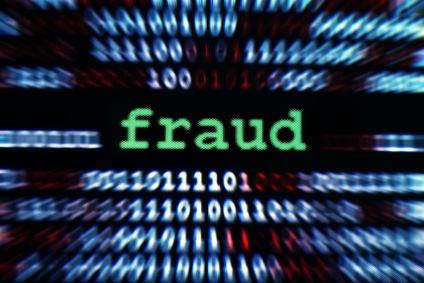Home » Archives for Hector E. Lora » Page 8
The Circuit Court of the Eleventh Judicial Circuit in Miami-Dade County, Florida recently dismissed equitable and tort claims for restitution, “money had and received,” negligence, indemnification, tortious interference and conversion brought by a company against its bank for reversing a wire transfer due to fraud. However, the Court refused to dismiss the account holder’s claim for breach of the deposit agreement. The Court held that Regulation J (12 CFR § 210.25-210.32) and Article 4A of the Uniform Commercial Code (UCC) were incorporated into the deposit agreement at issue, and these provisions only allowed the bank to reverse the payment under…
The U.S. Court of Appeals for the District of Columbia Circuit recently held that the Federal Communications Commission’s 2006 Solicited Fax Rule exceeded its authority under the federal Telephone Consumer Protection Act (TCPA) to the extent that it requires opt-out notices on fax advertisements sent with the permission of the recipient (“solicited” faxes) as well as on unsolicited fax advertisements. A copy of the opinion in Bais Yaakov of Spring Valley, et al v. FCC, et al is available at: Link to Opinion. A company that sells generic drugs faxed advertisements to small pharmacies containing weekly pricing information and “specials.” Many…
The District Court of Appeal of Florida for the Fourth District recently denied a borrower’s motion for appellate attorney’s fees in a contested foreclosure, holding that the reciprocity provision of section 57.105(7), Florida Statutes, does not apply where the borrower prevails based on lack of standing, unless the plaintiff mortgagee was also the original lender. A copy of the opinion in Nationstar Mortgage LLC, etc. v. Marie Ann Glass, et al. is available at: Link to Opinion. The trial court dismissed with prejudice a mortgagee’s amended foreclosure complaint, and the plaintiff mortgagee appealed. The mortgagee voluntarily dismissed the appeal, and…
The District Court of Appeal of the State of Florida, Fourth District, recently held that a creditor may obtain a post-foreclosure deficiency judgment against a borrower when the borrower was personally served with process in the post-foreclosure deficiency action, and the fact that the foreclosure court only acquired in rem jurisdiction due to service by publication in the prior foreclosure did not matter. In addition, the Appellate Court held that section 702.06, Florida Statutes, which governs deficiency judgments, is unambiguous and allows a separate suit to recover a deficiency where the foreclosure judgment did not adjudicate a claim for a…
The U.S. Court of Appeals for the Eighth Circuit recently affirmed a punitive damages award in an approximately 8-to-1 ratio to compensatory damages to a borrower who sued her mortgage loan servicer for alleged common law invasion of privacy and for allegedly violating the Fair Credit Reporting Act (FCRA), the Fair Debt Collection Practices Act (FDCPA) and the Real Estate Settlement Procedures Act (RESPA). In so ruling, the Court also held that the trial court properly excluded the testimony of a non-party consumer who was supposedly treated similarly by the servicer to rebut the servicer’s assertions of good faith conduct,…
The U.S. Court of Appeals for the Eleventh Circuit recently held that a court cannot extinguish a secured creditor’s state-law security interests for failure to file a proof of claim during the administration of an equity receivership over entities involved in a Ponzi scheme. A copy of the opinion in Securities and Exchange Commission v. Wells Fargo Bank is available at: Link to Opinion. The U.S. Securities and Exchange Commission filed an action seeking the appointment of an equity receiver following the collapse of a Ponzi scheme. The trial court appointed a receiver to “marshal and safeguard” the defendants’ assets…
The U.S. Court of Appeals for the Fifth Circuit recently held that the collection of garnished wages earned during the 90 days prior to the filing of a bankruptcy petition is an avoidable transfer, even if the garnishment was served before the 90-day preference period. The ruling creates a potential split with the Second, Seventh, and Eleventh Circuits, with the Fifth Circuit joining with the Sixth Circuit on the issue. A copy of the opinion in Tower Credit v. Schott is available at: Link to Opinion. A creditor obtained a money judgment in state court against the debtor and served…
The U.S. Court of Appeals for the Seventh Circuit recently reversed a trial court’s grant of class certification and remanded the case with instructions to dismiss the case with prejudice because the plaintiffs lacked standing to sue, having shown no injury in fact as required under Spokeo, Inc. v. Robins. A copy of the opinion Eike v. Allergan, Inc. is available at: Link to Opinion. A consumer plaintiff filed a putative class action against six pharmaceutical companies that manufacture eye drops to treat glaucoma. The complaint alleged that they violated the Illinois Consumer Fraud and Deceptive Business Practices Act and…
The District Court of Appeal of the State of Florida, Third District, recently reversed an award of attorney’s fees to a borrower pursuant to section 57.105, Florida Statutes, holding that because the borrower prevailed on her argument that the foreclosing mortgagee lacked standing to enforce the note and mortgage, there was no contract between the parties, and therefore the borrower could not invoke the attorney’s fees reciprocity provision of the statute. A copy of the opinion in The Bank of New York Mellon Trust Company, N.A. v. Fitzgerald is available at: Link to Opinion. The borrower signed a note and…
The U.S. Court of Appeals for the Fourth Circuit recently held that certain deposits and wire transfers into a bankrupt debtor’s personal, unrestricted checking account in the ordinary course of business were not “transfers” under § 101(54) of the Bankruptcy Code, affirming the district court’s and bankruptcy court’s entry of summary judgment in favor of the bank in an adversary proceeding brought by the bankruptcy trustee. A copy of the opinion in Charles Ivey, III v. First Citizens Bank & Trust Company is available at: Link to Opinion. The debtor orchestrated a Ponzi scheme that unraveled in 2009, in which…
The U.S. Court of Appeals for the Sixth Circuit recently held that a bankruptcy trustee seeking to recover fraudulent transfers could recover direct and indirect loan repayments made after the bank had knowledge of the debtor’s Ponzi scheme, but could not recover deposits not applied to pay back the bank’s debt because the bank was not a “transferee” under the Bankruptcy Code as to ordinary bank deposits. A copy of the opinion in Meoli v. The Huntington National Bank is available at: Link to Opinion. The principal of two bankrupt companies orchestrated a Ponzi scheme in which he fabricated invoices…
The Third District Court of Appeal of the State of Florida recently reversed a trial court’s denial of a car dealership’s motion to compel arbitration, holding that because there was no evidence that the buyers, who did not read or speak English, attempted to learn or have explained to them what they were signing, or that the dealer’s representatives prevented them from doing so or misrepresented the terms, the trial court erred by finding there was no valid agreement to arbitrate. A copy of the opinion in Kendall Imports, LLC v. Diaz, et al. is available at: Link to Opinion.…











